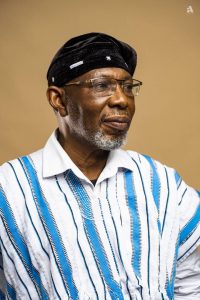Globally, there are many colleges and universities springing up daily due to the growing demand for tertiary education. The demand has been propelled by public knowledge that people who graduate with university degrees make an average of more than twice the incomes of those who have not. People with tertiary education are also more likely to have a reliable source of income than their counterparts in various industries. Additionally, college education increases civic engagement, volunteerism, healthy lifestyle, innovation, and passion for success needed to drive change.
The Lakeside University College, Ghana (L.U.C.G) is a technology and innovation-oriented Liberal Arts institution founded on Islamic values of honesty, sincerity, hard work, and integrity. It was founded and commissioned by Madina Foundation of Science & Technology (MFST) to provide access to high-quality education through teaching, research, and mentorship to empower graduates to provide solutions to everyday problems in communities. The institute holds a great promise for current and future generations, who aspire to explore the world around them. Its schools of engineering, business and technology provide a stimulating environment for academic and professional inquiries into complex issues and finding effective solutions to problems. The institute is envisaged by the founders to serve as a vehicle through which complex research is initiated and undertaken to inspire change.
LUCG trains students to receive respectable and prestigious degrees awarded by the Kwame Nkrumah University of Science & Technology and University for Development Studies, which are recognized around the world by employers, who yearn to recruit graduates with integrative theoretic and practical knowledge as well as willingness to add value to existing processes and systems.
At the institute, you will find the opportunity to receive an excellent education in engineering, business, and liberal arts. Our faculty members, who are academically and professionally qualified, will provide you with the support to think critically, act ethically, pursue truth, and contribute to the development of society. Our facilities are modern and sophisticated, necessitating active learning, small class size, intensive interaction between students and faculty members. Our first-class Library is equipped with all the necessary academic and professional materials to provide resources and support for students throughout their time at the institute. We envisage a vibrant campus atmosphere with a sizeable number of students living on campus comfortably. In this regard, we have provided large size apartment complexes to meet the accommodation needs of students. Our Students Affairs office will organize out of class activities to allow recreation and personal development of students.
As you explore opportunities at LUCG, we hope that this site provides comprehensive resources that expose you to the breadth and depth of LUCG. It contains what you can expect and the opportunities available once you are enrolled at the institute.
I wish you success as you explore learning opportunities at LUCG.
 Dr. Mohammed-Sani Abdulai is an educationist and distinguished IT professional who was born in Yendi on May 2, 1956 to Alhaji Abdulai Adam, a pioneer vulcanizer in the Tamale Metropolis and Hajia Martha Sandow, a petty trader. He gained admission to the then Government Secondary School, now Tamale Senior High School, on September 18, 1969, and successfully completed the SC/GCE Ordinary Level Programme at Tamasco in 1974, majoring in the Sciences.
Dr. Mohammed-Sani Abdulai is an educationist and distinguished IT professional who was born in Yendi on May 2, 1956 to Alhaji Abdulai Adam, a pioneer vulcanizer in the Tamale Metropolis and Hajia Martha Sandow, a petty trader. He gained admission to the then Government Secondary School, now Tamale Senior High School, on September 18, 1969, and successfully completed the SC/GCE Ordinary Level Programme at Tamasco in 1974, majoring in the Sciences.
He was one of a select group of students chosen in 1974, as pioneers, to start the GCE Advanced Level Programme at Bawku Senior High School. He graduated from Bawku Senior High School in 1976, with a GCE Advanced Level Certificate in Mathematics, Physics, Economics and General Paper.
Subsequently, he gained admission into the University of Cape Coast in 1976 and pursued concurrently a B.Sc. (Hons) Mathematics Major and Physics Minor Degree programme and a Diploma programme in Mathematics Education. On completion of his studies in 1980, he was retained as a faculty intern at the Computer Centre of the University.
Dr. Abdulai is an alumnus of the Norwegian University of Science and Technology (NTNU) and the Korea Advanced Institute of Science and Technology (KAIST).
He started his teaching career in 1981 at the Kaduna Polytechnic, Nigeria, as a lecturer in Mathematics and Computing and, on return from Norway in 1994, took up an academic position at the University of Ghana as lecturer in Computer Science. Subsequently, he served as an adjunct lecturer, at various times, at the University of Cape Coast, Islamic University College, Ghana, Valley View University, Ghana Institute of Management and Public Administration (GIMPA), and Ashesi University.
Dr. Abdulai has over 40 years of academic and professional practice to his credit and played a pioneering role in the development of Internet in Ghana and the ECOWAS sub-region.
Dr. Abdulai has served on the boards of the National Communications Authority (NCA), the National Information Technology Agency (NITA), the Ghana Interbank Payments and Settlements System (GhiPSS), the Environmental Protection Agency (EPA) and the INSTI-CSIR Management Board.
Dr. Abdulai was also a member of the committee that developed the National ICT for Accelerated Development (ICT4AD) policy and, as Head of IT of the Pilgrims Affairs Office of Ghana (PAOG), facilitated the business process re-engineering and automation of Hajj operations in Ghana.